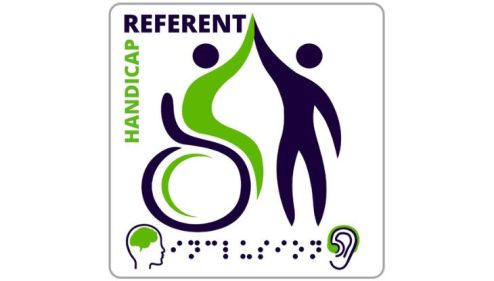BECOMING A STRATEGIC PLAYER IN INTERNATIONAL RELATIONS AND COOPERATION
The MSc Expert in International Relations and Cooperation program enables you to master the traditional approach to the study of international relations and the mechanisms of contemporary diplomacy.
In just two years, you’ll gain comprehensive, up-to-date expertise in international relations and cooperation, political science, foreign trade, defense and security.
A recognized diploma
- Professional certification in “Expert in International Relations and Cooperation” at Level 7 (EU), NSF code 128 & 346, awarded by MBA Institute, registered under number 39853 in the RNCP (Répertoire National des Certifications Professionnelles) by decision of the Director of France Compétences dated 28/11/2024.
- Each validated year of study also earns 60 ECTS credits (European Credits Transfer System). This system enables simpler, more transparent recognition of diplomas and qualifications between European Union countries, and makes every student’s academic career more flexible and transparent. To find out more about the ECTS system, please visit the official page.

MSc “Expert in International Relations & Cooperation” program
FIRST YEAR
- Introduction to Economic and Strategic Intelligence
- AI and Ethics
- OSINT (Open Source Intelligence)
- Public International Law
- Major Actors in International Relations
- International Trade Policies
- Strategic Policies since 1945
- European Cooperation Policies
- Business Internationalization
- Project Management Fundamental
- Principles of Communication
- International Contract Law
- Empires and Nations
- Typology of Crises
- International Justice
- Professional Experience Feedback (and its methodology)
- TECHAWAY-Artificial Intelligence
Specialization 1
- Analysis of Economic Statistics
- International Economics and Finance
- Actors in Economic Diplomacy
- Concept of Attractiveness
- Conducting Influence Diplomacy
Specialization 2
- French Defense and European Defense
- National Tools for Peacekeeping and Peace Restoration
- Defense Strategies and External Operations
- Defense Industrial and Technological Base
- Challenges of European Union Defense
SECOND YEAR
DEUXIÈME ANNÉE
- Intelligence and Monitoring Tools and Methods
- Artificial Intelligence and International Relations
- Country Risk Analysis
- Geopolitics of Energy and Climate
- Intercultural Negotiations
- Contemporary Geopolitical Issues
- International Cooperation Strategies
- Influence Communication and Lobbying
- International Project Management
- Financial Structuring of International Projects
- Crisis Management and Communication
- Crisis Analysis
- Mediation and Arbitration
- Professional Experience Feedback Methodology
- TECHAWAY-Artificial Intelligence
- Grand Oral Methodology
Specialization 1
- Economic Diplomacy
- Implementation of Influence Diplomacy
- Serious Game
- Attractiveness Policies
- International Development of International Companies
Specialization 2
- Intelligence: Institutional Organization
- Cybercrime and Cyberdefense
- New Conflict Spaces and Strategic Thinking
- The Intelligence Cycle: Technical and Human Tools
- Future of Defense Issues and Major Armament Projects
- Serious Game
To find out more about the program, download the school brochure.
Pedagogy
Pedagogical objectives
The program trains experts capable of managing international projects and leading diplomatic missions within governmental and non-governmental institutions, local authorities and companies, both in France and abroad.
Target skills
| Block 1 – Conduct a strategic and economic intelligence diagnosis on international issues | Implement structured global strategic intelligence integrating all relevant data (societal, environmental, economic) via appropriate tools including AI, while respecting the RGPD and the reliability of sources. Diagnose the situation of a country or region in depth, identifying key players, decision-makers and issues to map territorial risks. Analyze, cross-reference and prioritize all the data gathered to synthesize information according to its strategic value. Formulate critical recommendations and guidelines to facilitate decision-making and strengthen the organization’s activity. Anchor a culture of strategic intelligence within the organization. |
| Block 2 – Drawing up and implementing an international cooperation policy | Develop and manage international cooperation projects by drafting agreements tailored to the needs of the organization and its partners, then organizing the diplomatic and institutional meetings required to bring them to fruition. Support international development strategies by identifying key players, analyzing their policies and determining the most appropriate legal organization (technical office, subsidiary, etc.) according to the objectives pursued. Structure project financing by mobilizing all available tools (banking, concessional, European, multilateral, development aid). Coordinate the establishment of a variety of international partnerships, notably public and/or private, to strengthen the organization’s position through appropriate financing. |
| Block 3 – Managing an international project | Operationally manage an international project by qualifying it according to its stakes, defining an implementation schedule with appropriate monitoring tools, and mobilizing a targeted network of national and international stakeholders according to their respective skills. Organize and manage all stages of the project (design, negotiation, implementation, evaluation) within a multicultural collaborative framework, taking into account cultural differences, societal, environmental and disability issues. Implement an evaluation system to identify deviations from expected results, report to management and propose adjustments. Defend the organization’s interests internationally by proposing ethical and legal lobbying actions, based on analysis of foreign policies and an understanding of the mechanisms of influence between players. |
| Block 4 – Providing advice and support in international crisis situations | Analyze and map crises (including cyber) by identifying their internal, regional and international consequences, as well as the actors, destabilizing factors and sources of communication, in order to anticipate and propose a prevention policy with its legal tools. Build a corporate communications and crisis management plan adapted to the media context and risks, identifying the appropriate tools for disseminating information to target players and limiting any destabilization via social networks. Formalize crisis management procedures in line with national/international public plans, organize and coordinate a crisis unit by mobilizing the right people, defining their responsibilities and ensuring training in procedures at all levels of the organization. Evaluate responses (tools, communication, coordination) to propose improvement processes, update scenarios and guarantee the resilience and continuity of the organization’s activities. |
| Optional Block 1 – Leading an Attractiveness Policy and International Business Support | Identify attractiveness stakeholders through upstream monitoring and sector analysis, then map them according to their roles in order to promote a country’s or region’s attractiveness to foreign investors. Subsequently negotiate the entry of foreign partners, whether industrial or financial, into a national project and formalize solid and sustainable contracts. Organize support in all its forms – political, financial and operational – to strengthen companies’ positioning against international competition, adapting the support according to their status and purpose. Master new intervention methods and new international commitments, particularly those related to the environment, in order to better advise companies in their strategic approaches. Process data on market access to facilitate entry into a foreign market by taking into account international trade policies, whether free trade, protectionism or industrial sovereignty, as well as intellectual property rights. Thus enable companies to navigate effectively in a complex and constantly evolving business environment. Define an influence strategy internally and externally in order to develop the reputation, visibility and attractiveness of the organization or national companies internationally. Implement a strategy with all the tools of economic diplomacy: participation in trade shows, export financing, individualized support, organization of events such as conferences and seminars, and conducting official visits abroad to support and develop economic projects. |
| Optional Block 2 – Advising on Defense Policy or International Security Cooperation | Identify collective security mechanisms and cooperation methods within international and regional organizations and alliances in order to promote a defense and security policy, particularly to combat cybercrime and ensure the protection of data and vital infrastructure. Determine the relevant political and military mission instruments, mediation and sanction tools for the represented organization. Advise the represented organization in information warfare in order to ensure the security of information systems and cyberspace, linking traditional strategic functions with the “sixth strategic function” (influence). Analyze geopolitical and geostrategic contexts as well as the common, shared and projected issues of different actors in order to contribute to defining a defense strategy, taking into account developments in strategic thinking and doctrine, particularly regarding nuclear matters. Propose political and military objectives as well as decision-making processes relating to a planned joint and/or allied operation based on collective security mechanisms (NATO or European Union). Conduct a forward-looking study to propose a state or industrial strategy regarding the design, manufacture or acquisition of armaments or security tools. Advise the represented structure in its choices of a technological and industrial defense or international security strategy, taking into account the particularities of defense and security markets. Integrate the scope and challenges of the DTIB (Defense Technological and Industrial Base) as well as the specificities of institutional functioning and the company-administration relationship of the main arms exporters. |
Methods used
HEIP offers programs designed by academic and professional experts, regularly updated to keep pace with the latest market trends and requirements. HEIP integrates innovative teaching methods such as case studies, simulations and practical projects, enabling students to develop both analytical and practical skills. Emphasis is placed on the acquisition of the technical, analytical and interpersonal skills needed to succeed in institutional fields.
Faculty
Direction MSc Expert in International Relations and Cooperation: Dominique de Combles de Nayves
- Co-director MSc Expert in International Relations and Cooperation: Aude Bréjon
- MSc1 Expert in International Relations and Cooperation: Salim Saïfi
- MSc2 Expert in International Relations and Cooperation: Catherine Mathieu
View the list of faculty members at HEIP. Please note that this list is not exhaustive.
Evaluation methods
Assessment procedures are rigorous and based on a variety of methods, including case studies, simulations, role-playing, practical projects and oral presentations. Assessment criteria are clear and designed to measure students’ mastery of the skills they have developed.
Qualification methods
Assessment is carried out through capitalizable skills blocks, each validated independently according to specific methods: case studies, professional simulations, written reports and oral presentations. The complete qualification is obtained by validating the four common blocks, one specialization block according to the chosen pathway, the grand oral examination, the professional experience report, as well as by completing a work placement of at least 80 days in the second year.
Job opportunities
On graduating, our students are destined to work in both the private and public sectors, nationally and internationally, in multinationals as well as smaller companies. Depending on their chosen specialization, they quickly rise to positions of responsibility.
(non-exhaustive list)
International Security & Defense Policy” specialization
- Operational Safety Manager
- Consulting analyst for cybersecurity service providers
- Project manager for international organizations
- Business Intelligence Analyst
- Crisis management communications officer
- Consultant to defense contractors
International Affairs & Economic Diplomacy” specialization
- Project coordinator for an international organization
- Project manager in a local authority
- Logistician in an NGO
- Expert advisor to government agencies and ministries
- Consultant in a design office
- Head of training in cooperative project management
Choose a work-study program!
The MSc Expert in International Relations and Cooperation is offered on an initial or sandwich course.
It can be made :
- 2-year sandwich course
- 2 years initial
- 1-year initial course + 1-year sandwich course
For full-time students, completing a work placement of at least 80 days during the second year of the program (MSc 2) is mandatory.
Schedule by campus

Paris
- Download the work-study schedule Option 1 Diplomatie Economique et Développement International des Entreprises – Year 1
- Download the work-study schedule Option 1 Diplomatie Economique et Développement International des Entreprises – Year 2
- Download the work-study schedule Option 2 International Defense and Security Policy and Cooperation – Year 1
- Download the work-study schedule Option 2 International Defense and Security Policy and Cooperation – Year 2

Lyon
- Download the work-study schedule Option 1 Diplomatie Economique et Développement International des Entreprises – Year 1
- Download the work-study schedule Option 1 Diplomatie Economique et Développement International des Entreprises – Year 2
Admissions
Prerequisites
You can also apply for the first or second year of the MSc.
MSc 1
- Bac+3 (180 ECTS) or equivalent foreign qualification in humanities, law, social sciences, politics or economics.
- A keen interest in political science and international relations.
MSc 2
- Bac+4 (240 ECTS) validated in the following fields: international relations, political science of public administration, international law, public law, political and geopolitical science, economics.
- A keen interest in political science and international relations.
How to register
- Putting together an application
- Oral admission test
Candidates receive their test results 4 weeks after presenting their file to a jury.
All the details are explained on the MSc Admission page.
Rates
For 2025/2026 :
MSc sandwich course: €10,950/year
Initial MSc: €10,350/year
Application fees
80 (regardless of the year you apply)
For work-study students, the tuition fees are paid by the company or institution of the work-study student and/or the skills operator (OPCO). The remaining cost for the student is zero.
These rates are valid for the start of the 2025/2026 school year and are subject to annual review.
Practical information
Indicators and rates
- Graduation rate for the MSc “Expert en relations & coopérations internationales” program – Year 2023 – 2024: 84
- Teaching quality (pedagogy, expertise, availability, support, dialogue): 84%*2
- Quality of work-study schedule: 90%*2
- Apprenticeship indicators and rates (Nov 2023)
- Apprenticeship indicators and rates (Nov 2025)
*1 certification obtained in 2023
*2 Opinionway survey November 2023 & February 2025

Speakers
All our speakers are lecturers or experts in their field.
They all have 5 years’ higher education and a minimum of 3 to 5 years’ professional experience. Find out more about our teaching staff.

Campus
Courses are held in Paris and Lyon.
Find out more about all our campuses on our dedicated page.

Accessibility
The HEIP admissions process is accessible to people with disabilities. The admissions teams can adapt the tests as required.
All HEIP campuses (Paris, Lyon, Bordeaux, Rennes and London) are accessible to people with reduced mobility.


Last update on



